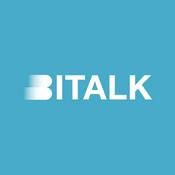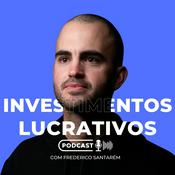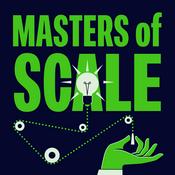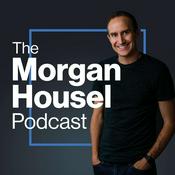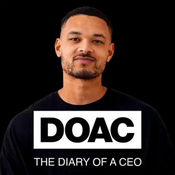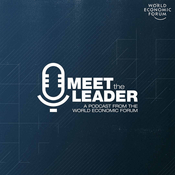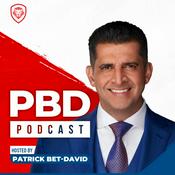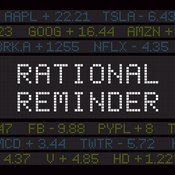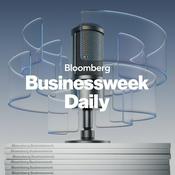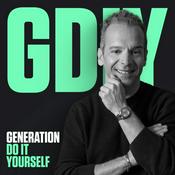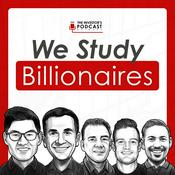42 episódios
- Why do so many “modern” platforms feel slow, fragile, and painful to work on?
Platform engineer and fractional CTO Brian Childress joins Cory to discuss how over-engineering, resume‑driven development, and scattered tooling quietly block teams from shipping value. They explore why simplicity is a competitive advantage for platform teams, especially as AI becomes part of everyday development.
You’ll learn:
How to design a simple platform MVP that developers actually like using
What a good local‑to‑prod story looks like (and why it’s the real scaling superpower)
Practical ways to onboard humans and AI tools so both can contribute faster
Where teams introduce unnecessary complexity with Kubernetes, microservices, and NoSQL
How to think about scaling in three dimensions: users, developers, and features
Why good architecture, docs, and decision records make AI more useful, not less
How to spot and avoid resume‑driven development before it explodes your platform
Whether you’re cleaning up a messy stack or trying to keep a young platform from drifting into chaos, this conversation gives you concrete patterns for keeping things simple while still scaling teams, systems, and features.
Guest: Brian Childress, Platform engineer and fractional CTO
Brian Childress is an accomplished Software Engineer, Architect and Fractional CTO. For over a decade Brian has developed applications in healthcare, finance, and consumer products. Brian has spoken internationally on topics such as application security and developer tooling. Brian spends his free time researching and teaching the latest in application and API security design and best practices.
Brian Childress, website
Brian Childress, X
Links to interesting things from this episode:
Replit
Lovable - What if changing a single flag could save you from a failed migration, a broken API, or a late-night rollback?
Join us as we dive into how feature flags become a practical tool for changing application behavior at runtime, not just toggling UI elements. Cory talks Mike Zorn about real stories from LaunchDarkly and Rippling, covering how teams use flags to ship safely, debug faster, and simplify complex systems.
You’ll hear about:
Using feature flags to avoid staging overload and ship directly to production
Migrating critical systems and databases with minimal downtime and risk
Controlling log levels and rate limits for specific customers on the fly
Managing flag sprawl so teams do not drown in half-rolled-out features
Experimenting with AI features, prompts, and models without fully committing
If you’re working on a platform, running critical infrastructure, or just trying to ship faster without breaking everything, this conversation offers concrete patterns you can start using right away.
Guest: Mike Zorn, Senior Software Engineer at Rippling
Mike’s software engineering journey began with an early interest in problem-solving and programming, starting with creating programs on a TI-83 calculator in middle school. After studying mathematics in college, he transitioned into software through an applied math project that required coding, which sparked his interest in engineering as a career.
Professionally, he has worked at several product and SaaS companies, including one that was an early LaunchDarkly customer, where they experienced firsthand the challenges of managing feature flags internally. That experience led him to appreciate the value of tools like LaunchDarkly, eventually joining the company himself. Since then, he has contributed across various areas, including focusing on how LaunchDarkly can best adopt its own platform internally to streamline releases and help engineers work more efficiently. His latest adventure has been joining Rippling as a Senior Staff Software Engineer.
Mike Zorn, GitHub
Mike Zorn, Email
Rippling
LaunchDarkly
Links to interesting things from this episode:
SigNoz
Signadot
Open Container Initiative
“Using Feature Flags to Avoid Downtime During Migrations”
Apache Iceberg - Most Kubernetes security breaches don't come from zero-day exploits - they come from misconfigurations. While your team runs scanners and reviews reports, containers are already running as root, network policies are missing, and compliance violations are piling up across dozens of repositories.
Jim Bugwadia, co-founder and CEO of Nirmata and creator of Kyverno, joins Cory to talk about a different approach: policy as code. Instead of asking developers to remember security best practices across every repo, what if your cluster automatically enforced secure defaults and blocked non-compliant deployments before they ever reached production?
You'll learn how to start using Kyverno today without breaking your production environment - from running your first audit scan (no installation required) to implementing enforcement mode with exceptions. Jim explains why micro-segmentation matters more than ever, how to automate network policies for every namespace, and why platform teams are using Kyverno for everything from security to cost optimization.
Whether you're running one cluster or managing Kubernetes at scale, this conversation offers practical strategies for making security a byproduct of your platform - not an afterthought.
Topics covered:
Why shift-left security fails and what "shift-down" means for platform teams
How to implement Kubernetes policy enforcement without grinding deployments to a halt
Automating secure defaults: network policies, resource quotas, and role bindings
The crawl-walk-run approach to rolling out policies in existing clusters
Real-world use cases beyond security: cost optimization and resource management
Guest: Jim Bugwadia, Co-Founder & CEO of Nirmata and creator of Kyverno
Jim Bugwadia is the Co-founder and CEO of Nirmata, a Kubernetes management platform built for enterprises to simplify and scale cloud-native operations across clouds, data centers, edge, and connected devices. With a mission to democratize cloud-native best practices, Jim brings deep expertise in building large-scale software products and leading high-performing teams. Before founding Nirmata, he led a global consulting team at Cisco, guiding enterprises and service providers on their cloud computing journeys. Earlier in his career, he contributed to innovative products at startups and major companies including Trapeze Networks, Pano Logic, Jetstream, Lucent, and Motorola. A hands-on technologist, Jim continues to code in Go, Java, and JavaScript, reflecting his passion for building in the rapidly evolving world of software.
Jim Bugwadia, X
Nirmata
Kyverno
Links to interesting things from this episode:
Kyverno Community Repository
“Shift-Down Security” Paper
OpenReports
Policy Reporter
“The Shai-Hulud npm malware attack: A... - Is your Git repo really the source of truth for infrastructure - or just a suggestion?
Guest host Kelsey Hightower sits down with Cory O’Daniel to unpack why many teams hit dead ends with CI/CD for provisioning, where GitOps struggles with drift, and when TicketOps helps or hurts. They explore a different model: infrastructure as data with typed contracts, shared artifacts, and workflows that embed policy, validation, and upgrades from the start. You’ll hear practical ways to reduce cognitive load for developers while giving operations reliable control and better day‑2 levers.
You’ll learn:
Why pipelines are a poor fit for infra provisioning and what to do instead
How to reason about drift as a three‑way merge with reality
When reconciliation helps, and when it breaks production firefights
How typed contracts and artifacts connect modules and teams without glue scripts
Ways to present safer self‑service without requiring everyone to learn Terraform
A simple mental model for treating TicketOps as a surface, not the workflow
Guest Host: Kelsey Hightower
Kelsey has worn every hat possible throughout his career in tech and enjoys leadership roles focused on making things happen and shipping software. Prior to his retirement, he was a Distinguished Engineer at Google, where he worked on Google Cloud Platform. He is a strong open source advocate with a focus on building great software as well as great communities around them. He is also an accomplished author and keynote speaker with a knack for demystifying complex topics, doing live demos and enabling others to succeed. When he is not writing code, you can catch him giving technical workshops covering everything from programming to system administration.
Guest: Cory O'Daniel, CEO and Co-Founder of Massdriver and Co-Founder of OpenTofu
Cory has been a software architect and engineer for 20 years, leading up to the founding of MassDriver. He's also a husband and the father of two kids.
Cory O'Daniel, X
Cory O'Daniel, Medium
Massdriver, website
Massdriver, GitHub
Massdriver, Youtube
Open Tofu
Links to interesting things from this episode:
"Gitopscracy" video - What if your production environment had a live, trustworthy blueprint you could zoom in and out of on demand?
Kelsey Hightower guest-hosts a candid conversation with Cory about why CI/CD pipelines and GitOps often break down for cloud infrastructure. They explore a simpler operational model: treat infrastructure as data, lean on clear checkpoints instead of rigid “golden paths,” and make production legible for both developers and ops.
You’ll learn:
Where CI/CD adds friction for infra and what to do instead
Why GitOps works for apps but hits limits for databases, networks, and multi-region realities
How “living diagrams” help new teammates understand prod on day one
Practical guardrails that evolve with your org without locking teams in
Ways to reduce drift, surprise cloud costs, and Day Two chaos
A mindset shift: databases for ops data, not shell-script archaeology
Walk away with concrete patterns to make production understandable, auditable, and easier to change—without more YAML or bigger pipelines.
Guest Host: Kelsey Hightower
Kelsey has worn every hat possible throughout his career in tech and enjoys leadership roles focused on making things happen and shipping software. Prior to his retirement, he was a Distinguished Engineer at Google, where he worked on Google Cloud Platform. He is a strong open source advocate with a focus on building great software as well as great communities around them. He is also an accomplished author and keynote speaker with a knack for demystifying complex topics, doing live demos and enabling others to succeed. When he is not writing code, you can catch him giving technical workshops covering everything from programming to system administration.
Guest: Cory O'Daniel, CEO and Co-Founder of Massdriver and Co-Founder of OpenTofu
Cory has been a software architect and engineer for 20 years, leading up to the founding of MassDriver. He's also a husband and the father of two kids.
Cory O'Daniel, X
Cory O'Daniel, Medium
Massdriver, website
Massdriver, GitHub
Massdriver, Youtube
Open Tofu
Links to interesting things from this episode:
SigNoz
“The $6,459 Terraform Lesson: Why Infrastructure Lifecycle Monitoring Matters” by Liz Fong-Jones
"Gitopscracy" video
Mais podcasts de Negócios
Podcasts em tendência em Negócios
Sobre Platform Engineering Podcast
The Platform Engineering Podcast is a show about the real work of building and running internal platforms — hosted by Cory O’Daniel, longtime infrastructure and software engineer, and CEO/cofounder of Massdriver.
Each episode features candid conversations with the engineers, leads, and builders shaping platform engineering today. Topics range from org structure and team ownership to infrastructure design, developer experience, and the tradeoffs behind every “it depends.”
Cory brings two decades of experience building platforms — and now spends his time thinking about how teams scale infrastructure without creating bottlenecks or burning out ops. This podcast isn’t about trends. It’s about how platform engineering actually works inside real companies.
Whether you're deep into Terraform/OpenTofu modules, building golden paths, or just trying to keep your platform from becoming a dumpster fire — you’ll probably find something useful here.
Sítio Web de podcastOuve Platform Engineering Podcast, Liga dos Inovadores e muitos outros podcasts de todo o mundo com a aplicação radio.pt
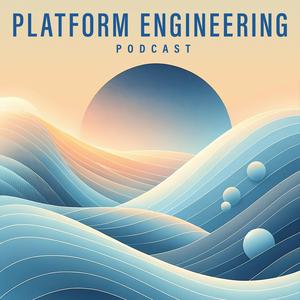
Obtenha a aplicação gratuita radio.pt
- Guardar rádios e podcasts favoritos
- Transmissão via Wi-Fi ou Bluetooth
- Carplay & Android Audo compatìvel
- E ainda mais funções
Obtenha a aplicação gratuita radio.pt
- Guardar rádios e podcasts favoritos
- Transmissão via Wi-Fi ou Bluetooth
- Carplay & Android Audo compatìvel
- E ainda mais funções


Platform Engineering Podcast
Leia o código,
descarregue a aplicação,
ouça.
descarregue a aplicação,
ouça.





